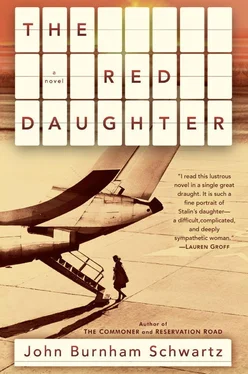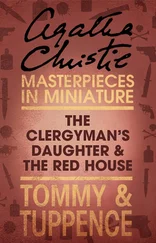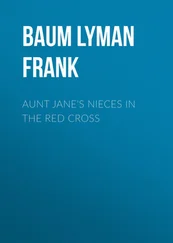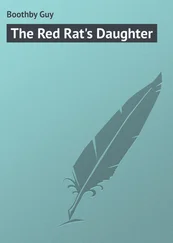John Schwartz - The Red Daughter
Здесь есть возможность читать онлайн «John Schwartz - The Red Daughter» весь текст электронной книги совершенно бесплатно (целиком полную версию без сокращений). В некоторых случаях можно слушать аудио, скачать через торрент в формате fb2 и присутствует краткое содержание. Город: New York, Год выпуска: 2019, ISBN: 2019, Издательство: Random House, Жанр: Историческая проза, на английском языке. Описание произведения, (предисловие) а так же отзывы посетителей доступны на портале библиотеки ЛибКат.
- Название:The Red Daughter
- Автор:
- Издательство:Random House
- Жанр:
- Год:2019
- Город:New York
- ISBN:978-1-40006-846-3
- Рейтинг книги:4 / 5. Голосов: 1
-
Избранное:Добавить в избранное
- Отзывы:
-
Ваша оценка:
- 80
- 1
- 2
- 3
- 4
- 5
The Red Daughter: краткое содержание, описание и аннотация
Предлагаем к чтению аннотацию, описание, краткое содержание или предисловие (зависит от того, что написал сам автор книги «The Red Daughter»). Если вы не нашли необходимую информацию о книге — напишите в комментариях, мы постараемся отыскать её.
The Red Daughter — читать онлайн бесплатно полную книгу (весь текст) целиком
Ниже представлен текст книги, разбитый по страницам. Система сохранения места последней прочитанной страницы, позволяет с удобством читать онлайн бесплатно книгу «The Red Daughter», без необходимости каждый раз заново искать на чём Вы остановились. Поставьте закладку, и сможете в любой момент перейти на страницу, на которой закончили чтение.
Интервал:
Закладка:
I did not forget. It was to Fyodor, however unnamed, that I wrote the twenty “letters” of my memoir, describing in that intimate epistolary form aspects of my relationship with my family and upbringing that no contemporary had cared to understand. I wrote about my father as only I knew him and believed he was; my mother to what degree I could remember; my brothers, Yakov and Vasily; my aunts, uncles, grandparents, so many of them gone.
And then, in the summer of 1963, I finished that book of letters ( Don’t you know that a good book never ends? It just runs out of pages. ) and never showed it to Fyodor, never showed it to anyone, and three years later, never quite comprehending what I was doing, took it with me in my luggage, packed beside the ashes of Brajesh Singh, to India.
Fyodor does not care about any of this now. He does not wish to know. Sick and dying, his wife gone, his once abundant hair in shreds across a sun-pocked scalp, with matted gray beard smelling of week-old borscht, he greets me at the door to his apartment with the resentful question, Why have you returned? He means, as he wishes to elaborate at bitter length over tea, that I have allowed myself to become a tool for state propaganda, nothing more. For what purpose? To save your children? You delude yourself. They do not need this kind of saving, it only brings them trouble and pain. Now you are truly powerless, a stupid puppet acting out the role written for you.
Not tea, then, but a bloodletting. My cup still undrunk, I get to my feet and thank him ironically for his former friendship. Did you know, Fyodor, I can’t resist adding, that book—you remember, those letters to you that you encouraged me to write—turned into a million-dollar blockbuster in America? Every word became a dollar that I spent. And all thanks to you.
I leave the great man sunken in his chair. He won’t last till spring. And later, after a bath salted with my own regret, I sit in one of these two luxury rooms paid for by the State, my American son in the other repeating God knows what phrases in Russian, with my semi-reconstituted name (my father once again the military genius who won the war and saved the nation), writing these words with the irrefutable knowledge that my soul is in peril. Yes, my very soul. Who am I to speak? To have left my children unprotected, not once but countless times—this not even my father did to me, only my mother, and only after putting a bullet in her heart.
I may not be able to leave this country again. But some way—any way, God forgive me—I must get Yasha out of this loveless prison of a city before it is too late.
5 December 1984
Tbilisi
And so, mirabile dictu, it turns out that little Housekeeper still has it in her to write a certain kind of letter to a certain rank of Soviet official. Who would’ve guessed? Though not so wondrous, perhaps: the fact is they don’t want me here, any more than I want to be here. All I needed to say was that it was of the utmost urgency that my son and I be removed from these ceaseless attacks by the Western Press, so destabilizing to our resettlement process in Moscow. That I still hold fondest memories of occasional visits with my father to Georgia, where Yasha and I have relatives… Perhaps Tbilisi, then, might be a place where we could live in peace and quiet? Because to lie low is all that I wish at this stage of my life, now that I am home again. Of course, once in Georgia, I would communicate regularly with the local authorities while steering clear of the foreign press…
The response was astonishingly swift: our relocation was permissible. In fact, it was a good deal more than that. Everyone knows the government is less than stable these days. One feels tectonic cracks in the streets and food lines. And how many old men, dare one ask, can lead the Party in a row, literally dying at their desks, without the inevitable necrosis of the whole animal? Nor, indeed, am I turning out to be the high-end political product they thought they’d purchased at international auction, in this land where buyer’s remorse insurance policies do not exist.
And so, within a week, very quietly, Yasha and I were extricated from the Hotel Sovietsky and put on a plane to Tbilisi.
Never in my life had I seen snow in Georgia. Palm trees yes, but not snow. On the few trips my father ever invited me on, however chilled the company, the southern climate was always temperate and balmy, even, once, as late as November. But it was December now, and looking down through the tiny windows as the plane passed high over the Caucasus Mountains, Yasha and I were struck nearly blind by a fierce white glare, like a massive, disorienting lake of fluorescent milk, reflecting off the snowy peaks and troughs of the land, until, finally, we had to shade our eyes and look away.
11 December 1984
Our driver’s name is Jora. He knows Tbilisi—all Georgia, he claims, probably truthfully—with the exaggerated passion of a lover rather than a husband. Yasha says Jora is awesome, Mom (the faux-Cockney accent seemingly gone overnight, I’m relieved to find), while I appreciate our driver’s sometimes poetic powers of description, if not his discretion. For there is no doubt that Jora, with his full Georgian lips and powerful sloping shoulders, is the mighty Shevardnadze’s pocket man, reporting on our every whim and sneeze. Just as it can be no coincidence that the modern-style apartment complex in which the State is housing us, luxurious though it is, is located not in the beautiful, teeming center of the old capital, but on its less populated outskirts, where it is easier, as Dick Thompson might have said, to more closely monitor our individual needs.
The apartment complex is as over-the-top in its way as the Hotel Sovietsky, all marble and glass, and as stuffed with visiting dignitaries and Party members on their regional tours. Yasha immediately began calling it, with apparent sincerity, the palace, and I have not had the heart to point out to him that palace and prison both begin with the same letter of the alphabet.
There is only one thing here that soothes me. On the grounds of the complex is a reindeer farm. We have been in Tbilisi nine days, and on every one I have been to see the reindeer, none of whom have ever heard of Stalin, or the vozhd, or Koba, or Soso, or Soselo, or Ivanov, or any of his other names. I make my visits alone, since Yasha, with his thirteen-year-old’s erratic hormones and quick fuse, won’t be bothered. Because it is a working farm and not a zoo, there are no plaques offering information about these large antlered mammals who never seem to do very much except stand and eat and shit and, oh so subtly, comfort lost women like myself. So it is only by my own memory that I recall, as Peter told me one December afternoon when we were in the Lord & Taylor department store shopping for a Christmas blouse for me and “Rudolph the Red-Nosed Reindeer” began playing over the loudspeakers, that in North America reindeer are sometimes called caribou. A silly, pointless fact which nonetheless makes me miss Peter so much at this moment that I can hardly bear to write his name.
22 December 1984
Comrade A, curator of the Stalin museum, phones today to tell me how much she regrets that I declined to attend yesterday’s ceremony for the 106th anniversary of my father’s birth. It was unquestionably a triumph, she says. Did I know that over one million people visited the exhibitions this year alone?
The people, the comrade concludes proudly, almost hysterically, cannot get enough .
I make no comment with regard to who and what might be enough. Instead, I spontaneously decide to tell her the little anecdote that amused my father more than any other.
Читать дальшеИнтервал:
Закладка:
Похожие книги на «The Red Daughter»
Представляем Вашему вниманию похожие книги на «The Red Daughter» списком для выбора. Мы отобрали схожую по названию и смыслу литературу в надежде предоставить читателям больше вариантов отыскать новые, интересные, ещё непрочитанные произведения.
Обсуждение, отзывы о книге «The Red Daughter» и просто собственные мнения читателей. Оставьте ваши комментарии, напишите, что Вы думаете о произведении, его смысле или главных героях. Укажите что конкретно понравилось, а что нет, и почему Вы так считаете.












